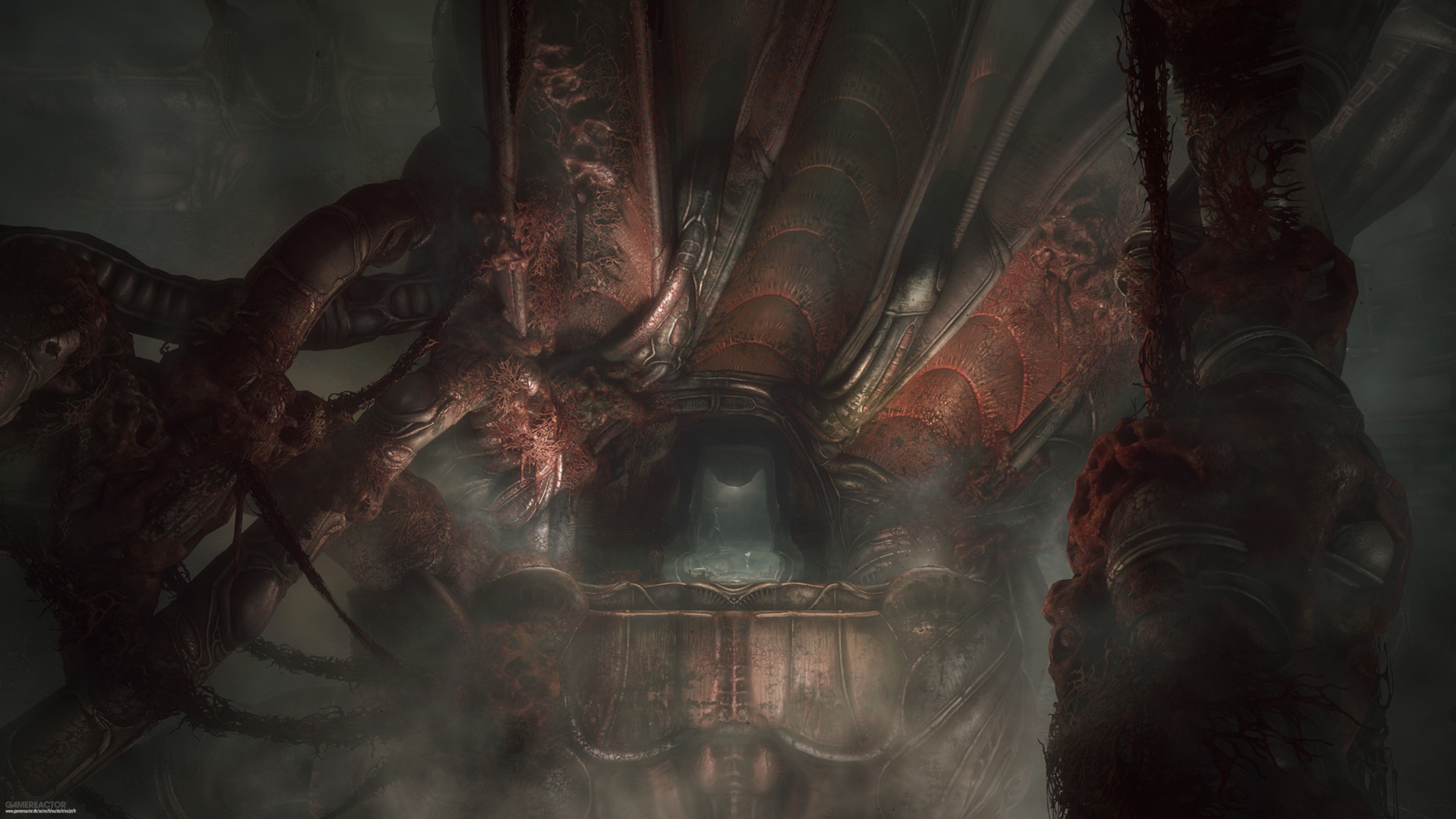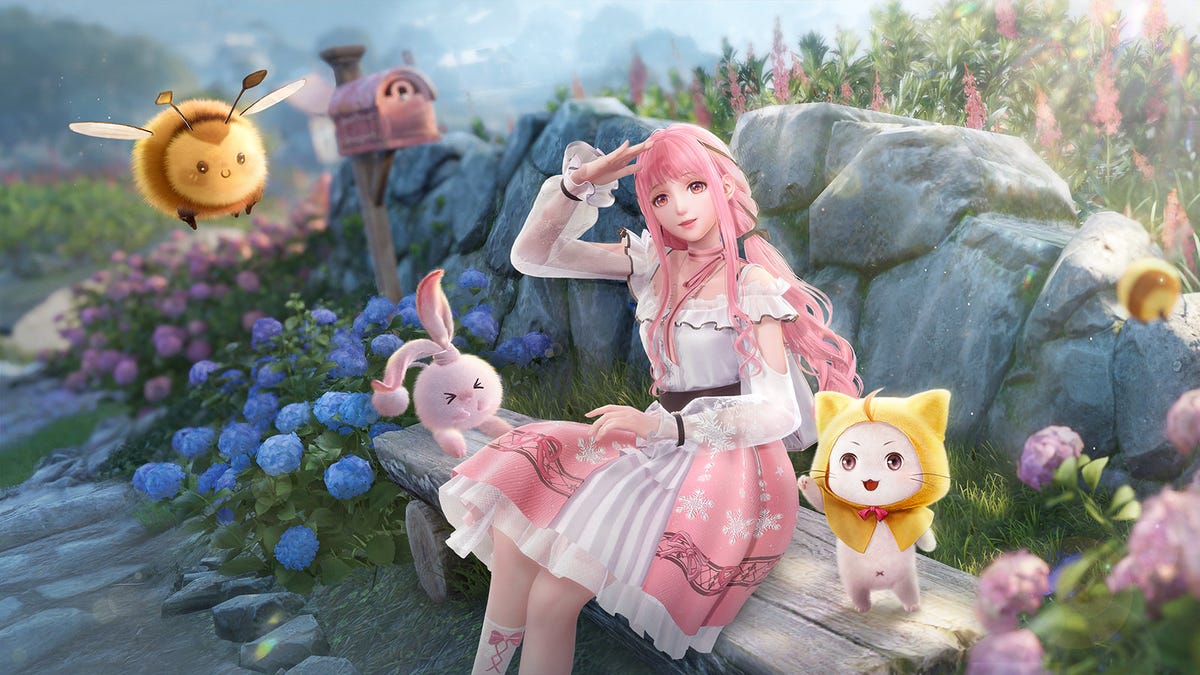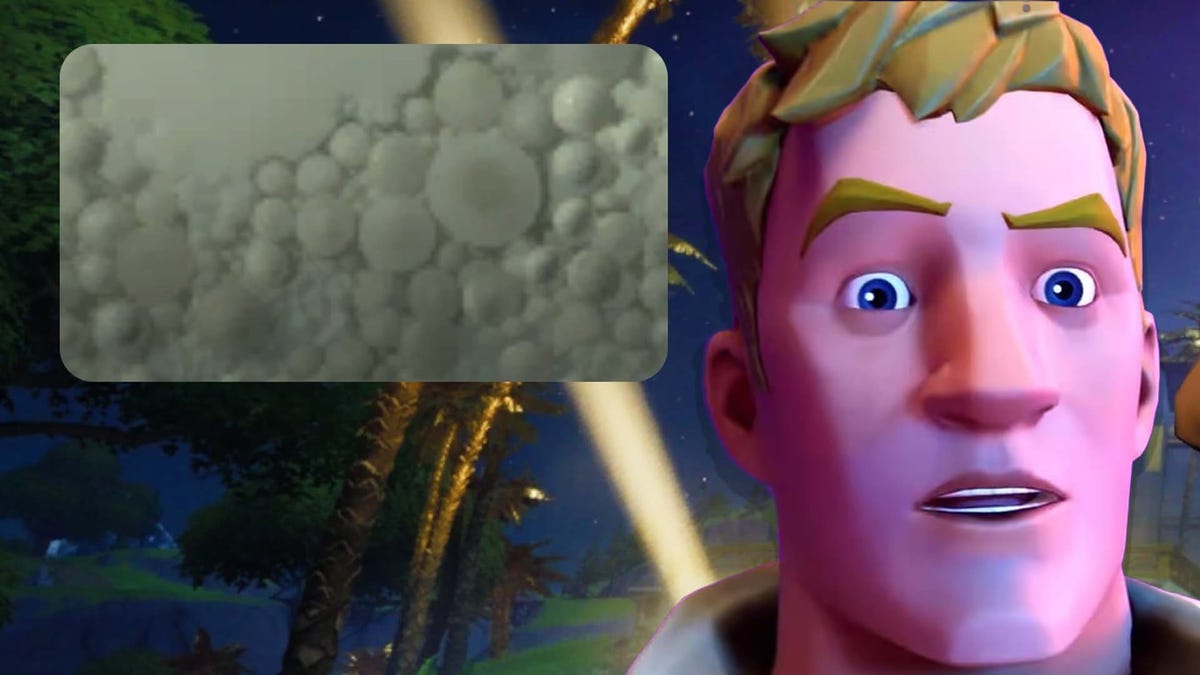Every now and then a game comes along that has been in development for so long that I’ve lost faith that it’ll ever come out. I remember five years ago Scorn sponsored a podcast that I was listening to at the time. The game was then described as a stylistic project with a dark and gritty atmosphere. Now that I’ve finally played Scorn, I can say that the description was pretty accurate. Scorn is quite a unique experience, and it’s easy to see why it took studio Ebb Software so long to complete the game.
Scorn is minimalist in its way of telling its story, and after playing it I’m still not quite sure what I actually experienced. You are a humanoid looking creature that opens its eyes and then has to figure out what’s going on with no outer or omniscient narration other than what the environment and the puzzles you have to solve offer. On the one hand, it works quite well because it’s your own interpretation that creates the story. On the other hand, it all seems a bit pointless since your in-game avatar doesn’t have a personality to lead you to figure out what the heck is going on.
Because of this, I had to push myself through the first few hours of the game as the title made no attempt to guide me. Essentially, the puzzles are the story, and without them you’re just wandering through gray and brown rooms that look pretty much alike. Also, I initially had trouble finding the right button to start the game since all the other puzzles in this first area depended on solving a specific starting puzzle. Luckily I finally found it and once it was solved the other puzzles made sense too.
Advertising:
What I was missing was an egg-like thing (objects in Scorn are often grotesque or twisted versions of what we know in our reality) containing a cradle with a crippled, whimpering creature. After using it in various puzzles, you can decide whether to kill the creature or release it. Next you have to solve as many puzzles depending on whether you free them or kill them. Whichever option you choose, you’ll end up using this creature’s arm to open the first large door that was previously locked.
This is also an example of the game’s narration, as you’ll immediately start wondering what the weird creature is and why it’s in an egg. As I said, even after completing the game, I’m not exactly sure what I saw. That’s why I find Scorn a bit extreme. There is no definitive answer other than your own interpretation of the many strange events you encounter.
Advertising:
It might be appealing to some, but personally I had a hard time exploring the grotesque world without a story to guide me as its atmosphere is very, very depressing and not particularly fun to inhabit. I understand what Ebb Software is trying to do here, but I practically hated every minute of it and had to take a lot of breaks during my gameplay as it really felt like it was affecting my mood if I was out in the world for too long. It’s a style choice and I respect that, but the atmosphere made the whole experience pretty depressing for me. But if that kind of stark desolation appeals to you, it’s certainly effective. What kept me going were the puzzles, which are actually pretty smart and make sense once you get used to the weird kind of logic that governs the world of Scorn. The level of difficulty increases gradually, but it never gets too difficult.
Visually, Scorn is a charming mix of dark browns and grays, and the sombre music adds to the sombre atmosphere. While quite classic, there are several puzzles that require you to find multiple rooms, flip a switch, or solve a riddle, which isn’t uncommon for the genre. The problem is that I spent more time walking through the labyrinthine corridors, which are quite convoluted at times, than solving the puzzles themselves. Ebb Software has tried to solve this problem by marking hotspots in red, but failing to find the right rooms to start with will test your patience. It doesn’t get better as the game progresses, where you also have to deal with enemies that respawn shortly after defeating them. With all the back and forth trips, this quickly becomes a real hassle.
At the beginning of the game, your only weapon is a spear, which you can use to stab enemies, but later you can upgrade your powers, allowing you to even fire grenades, among other things. Make no mistake, this is not a shooter at all. Yes, sometimes you have to shoot the nasty creatures that want to hurt you, but the guns are mostly used to solve the puzzles. For example, there is a boss fight where you have to use the grenade launcher in a certain way in order to defeat it. After the boss, the grenade launcher must also be used in various places to solve the usual puzzles, which is a pretty nifty feature. It also contributes to the world-building, as everything in Scorn seems to be connected, sometimes in a very awkward and physical sense.
As I said before, Scorn is not a very colorful or happy game. Its world is brown, industrial, and ugly, and the atmosphere is oppressive and depressing. Also, everything is extremely dark and there is a sickly gray fog covering most of the stage. It’s easy to get the unsettling feeling of being trapped in a beast’s belly, as everything is organic and there are pulsing walls covered in slime, slime and worse. At the start of the game, you have a contraption on your arm that you use to interact with puzzles, open doors, and the like. You have to put your fingers or hands in holes that look like different body orifices. It’s very gross, but it fits well with the overall atmosphere of the game. As I said, it’s not for everyone, but surprisingly well designed for all its hideousness.
Scorn is a strange game. Though it’s visually stylish, it demands a lot from the player and you won’t get any help from the developers. The only way forward is to get sucked into the game’s uncomfortable but hypnotic atmosphere, which will help you understand the logic of the puzzles. Of course, it’s not a game to sit and relax in, as it requires a lot of concentration. I really enjoyed certain parts of the game and didn’t bother others, but I thank Ebb Software for their determination, they had a clear vision for the game and decided to stick with it to the end.












